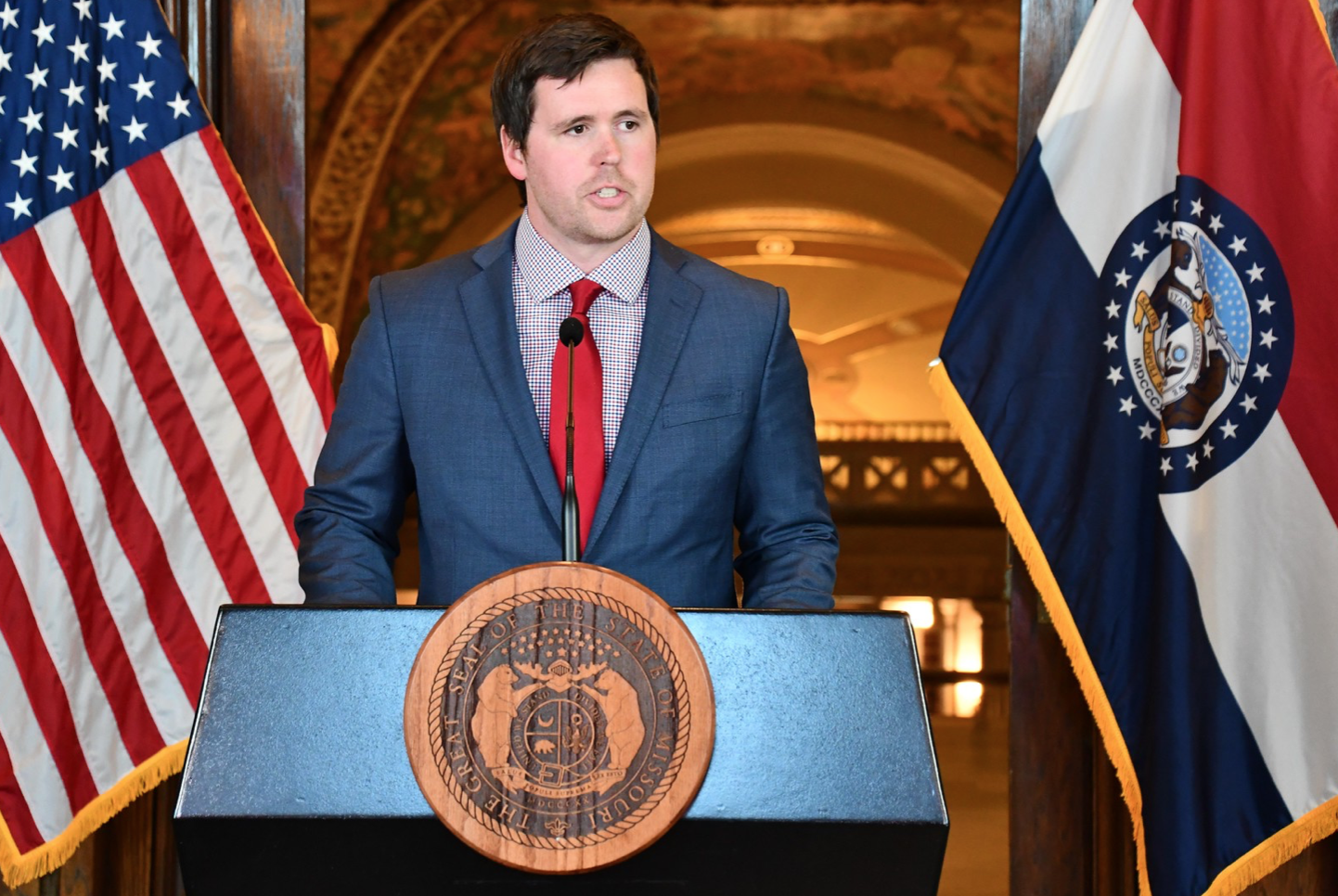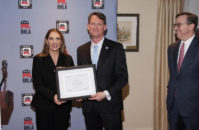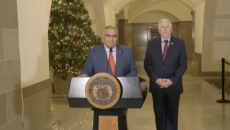JEFFERSON CITY, Mo. — Despite the recent changes, Treasurer Scott Fitzpatrick said there was no way to reconcile his concerns over IRS reporting standards proposed by the Biden administration.
The proposal would require financial institutions to report information on personal and business accounts with the Internal Revenue Service (IRS) if they exceed $10,000 in incoming or outgoing cash, known as inflow or outflow, respectively. The proposal excludes income through a paycheck in which taxes are automatically deducted.
The reporting threshold was increased dramatically this week, from the original proposed $600 minimum, but Fitzpatrick said the change was not enough to satiate its critics.
“As it relates to compulsory reporting of bank accounts and financial account information, I don’t see that that’s a good idea at any level. I don’t see how anybody in their right mind would think that’s a good idea or frankly how that would help,” Fitzpatrick said. “You would think the IRS would realize this and how useless the numbers they’re now saying they want would actually be for helping them enforce tax laws.”
Fitzpatrick joined Missouri bankers and state lawmakers in the Capitol to decry the proposals Thursday afternoon as part of a three-stop tour across the state.
John Klebba, CEO of Legends Bank in Jefferson City, said banks’ opposition was not about evading taxes, but rather on avoiding a “guilty until proven innocent” approach. Klebba said the proposal would harm the public’s trust in banks and the government and could lead to a mass exodus from the banking system to alternatives like digital currency.
Fitzpatrick pointed to the state’s MO ABLE program, which allows Missourians with disabilities to save up to $15,000 a year tax-free for health-related expenses without losing federal benefits, and the MOST 529 Education Plan allowing individuals to contribute up to $550,000 into education savings accounts. Fitzpatrick said the proposal would jeopardize the privacy of account holders.
Financial records for MOST 529 and MO ABLE participants are protected under Missouri law, according to Fitzpatrick’s office. More than 200,000 accounts fall under the programs.
Fitzpatrick, a candidate for state auditor and vice-chair of the State Financial Officers Foundation, joined almost two dozen other state financial officers on a letter to President Joe Biden and Treasury Secretary Janet Yellen opposing the idea last month, pointing to concerns over privacy and the risk of cybersecurity breaches.
While much of the outcry has said the IRS would receive individual data, the left-leaning Center for American Progress argued the proposal would see institutions reporting aggregate data rather than individual accounts. The change would bolster tax revenue by ensuring no revenue goes unreported, adding more than $460 billion to the nation’s coffers over the next decade, the Treasury Department estimated.
“This proposal would create a comprehensive financial account information reporting regime,” the Treasury Department said in a memo on the administration’s revenue proposals published in May. “Financial institutions would report data on financial accounts in an information return. The annual return will report gross inflows and outflows with a breakdown for physical cash, transactions with a foreign account, and transfers to and from another account with the same owner.”
The proposal is part of the American Families Plan, which seeks to increase federal investments in child care, education, paid leave, and other initiatives through increased taxes on high-income taxpayers. The bill is still working its way through Congress.

Cameron Gerber studied journalism at Lincoln University. Prior to Lincoln, he earned an associate’s degree from State Fair Community College. Cameron is a native of Eldon, Missouri.
Contact Cameron at cameron@themissouritimes.com.































